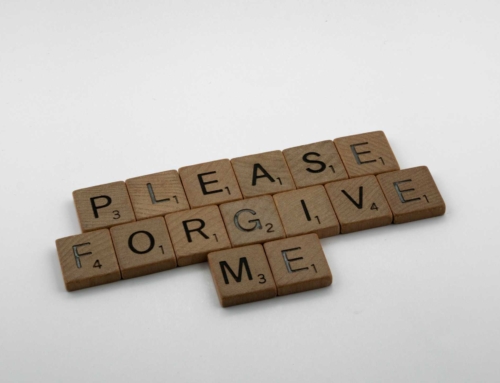If anyone grew up in the church, they remember the “True Love Waits” movement. Today the whole movement is referred to as “purity culture,” and there are many who are writing about how harmful it has been to men and women alike. The goal originally was to help young men and women still are sexually pure before marriage, not having sex with anyone until their spouse. Some authors even went to the extreme of no dating or kissing before marriage.
 There was so much focus on the harm of sex before marriage and how bad it was, how shameful it was, that there was little to no discussion on the beauty of sex. There were no talks about how the human body is made to enjoy sex and feel arousal, that those things were not shameful.
There was so much focus on the harm of sex before marriage and how bad it was, how shameful it was, that there was little to no discussion on the beauty of sex. There were no talks about how the human body is made to enjoy sex and feel arousal, that those things were not shameful.
Teens were taught that it was better to marry than be filled with lust, so they married as soon as they could to fulfill their sexual desires, not realizing that by itself, that was a poor reason for marriage.
Parents did not have any healthy sex talks other than “don’t do it.” The discussions centered around purity rings, contracts, and STDs and how dirty one was if one had sex before marriage. It was about how girls need to dress modestly to not cause their brothers in Christ to stumble and lust, and how boys only ever thought about one thing.
What happened, as a result, was that young people feared sex, didn’t know what to do with the arousal happening at times in their bodies, hid behind secret sexual sin, and lived in shame.
This shame now affects them greatly as adults. For some reason, above all the other sins, sexual sin seems to produce the most shame among Evangelical Christians. The secular culture attaches no shame to any sexual activity, as it is a normal human need.
They have distorted the biblical model, to say the least, but they aren’t feeling the same shame about it. This article will barely scratch the surface of this important topic, but one’s sexual history (or lack thereof) can greatly affect who one is today.
The ripple effects of a “shameful” sexual past

The word shameful is in quotation marks because the term is compared to the person and situation. A person may feel shame about being a victim of childhood sexual abuse or adult sexual assault. Even though logically they often know those things were not their fault, they feel dirty, gross, disgusting, or like they should have known better, should have known what to do.
One may feel shame about a history of masturbation, feeling like they are doing something wrong. Another may feel shame about sexual behavior before marriage with another person, and another may feel shame for having same-sex attraction.
Not one person’s experience is the same, and it is not okay for those situations to still bring shame. If a person knowingly did wrong, then it is good to feel godly sorrow over one’s sin, recognizing that it was wrong, and they need Jesus to change them and lead them down a different path. Shame isn’t like this, though. Shame says, “I am gross. I am bad. I am wrong.” Guilt says, “I was wrong. I did wrong.”
One person’s sexual history that has brought on shame may be different than another’s, but the ripple effects are similar.
Sex isn’t how it was supposed to be.
When shame is present, it is difficult to push it aside in marriage when having sex. Old mistakes come flooding back. Old trauma comes back in. Body image issues and struggling to orgasm because one can’t turn off her mind and release control in the moment— these are ways that shame affects one’s sex life.
One can’t simply flip the switch as soon as they say “I do,” going from “NO! Sex is bad!” to “YES! SEX! The best sex ever!” From “No cover it all up” to “Take it off! Be sexy for your husband!” It does not work that way. Women have a tough time tuning out those past experiences and belief systems during sex.
Men (as well as women) can run to pornography to fulfill some sexual fantasies they are not living out. These are all distortions of the way sex was meant to be – a beautiful expression of intimacy between a married man and woman. It becomes weird and uncomfortable, instead of freeing and pleasurable.
Can lead to a boring sex life.
 Many who have known sexual shame struggle to be creative sexually with his or her spouse. They are afraid to try new things and some more out-of-the-box experiences seem gross and wrong. They have little sexual freedom in their marriages when it seems like that is exactly what God wants for marriages. Also, helping one another find pleasure can feel strange and wrong because for so long, they were taught it was bad.
Many who have known sexual shame struggle to be creative sexually with his or her spouse. They are afraid to try new things and some more out-of-the-box experiences seem gross and wrong. They have little sexual freedom in their marriages when it seems like that is exactly what God wants for marriages. Also, helping one another find pleasure can feel strange and wrong because for so long, they were taught it was bad.
Body shame
When one is taught for so long to fight the lust of their flesh, it is easy to believe that feeling arousal is wrong. One learns to feel shame when arousal is experienced, without realizing that it is a natural response in the human body. The tendency is to feel shame about one’s physical appearance – like their sex organs, for example.
Showing another person those areas is a display of trust and vulnerability, though many people struggle to show them, and further, allowing someone to experience pleasure because of one’s body feels wrong. Sex is had with the lights off with little of the enjoyment of looking at one’s partner’s body.
More secret sin.
Sexual activity before marriage in the church is usually kept secret, again because of the shame associated with it. When people feel they need to hide this sin, they often begin to hide more sin over time. It could prevent them from having open discussions about sex with their partner when married, and it could lead to more sexual secrets within marriage, like infidelity and porn.
How can a person overcome their sexual history when it comes back to haunt them?
Seek counseling
A counselor can walk with a person through their sexual history, help them move forward from the hurt of any trauma, and help them lay down their shame to be able to enjoy sex now if they are married, or simply be able to walk freely with no shame.
Address your theology of sex
What do you believe about sex? Who taught you to think this way? When did you begin believing this? How did you feel when you explored sexually? Do you still feel this way? What does the Bible say about sex? What does God want for sex? These are all questions that are important to answer and meditate on when facing sexual shame head-on.
Read healing resources on the subject
#CHURCHTOO: How Purity Culture Upholds Abuse and How to Find Healing, by Emily Joe Allison
Talking Back to Purity Culture: Rediscovering Faithful Christian Sexuality, by Rachel Joy Welcher
The Great Sex Rescue: The Lies You’ve Been Taught and How to Recover What God Intended, by Sheila Wray Gregoire
Have hard conversations
People need to stop seeing this subject as taboo and begin to have curious, open conversations about this. It can be helpful to hear other people’s perspectives on how purity culture created a sense of shame about sex for them, and how their sexual history have affected them today. It’s good to talk about uncomfortable things and talk about what they believe.
Open the conversation so that it’s not focused on shame. These conversations can bring back the beauty and mystery and excitement of sex and what it was meant to be. People do not have to hide behind their sexual history. They don’t have to let shame win anymore.
They can have the kind of sex they were meant to have if they are married, and if single, they can stop being so hard on themselves every time they feel aroused or have a desire for sex. Everyone can give more grace here.
“Holding Hands”, Courtesy of Shelby Deeter, Unsplash.com, CC0 License; “Naptime”, Courtesy of Ashley Byrd, Unsplash.com, CC0 License; “Broken”, Courtesy of Chuttersnap, Unsplash.com, CC0 License; “Indian Wedding”, Courtesy of Pablo Heimplatz,, Unsplash.com, CC0 License









